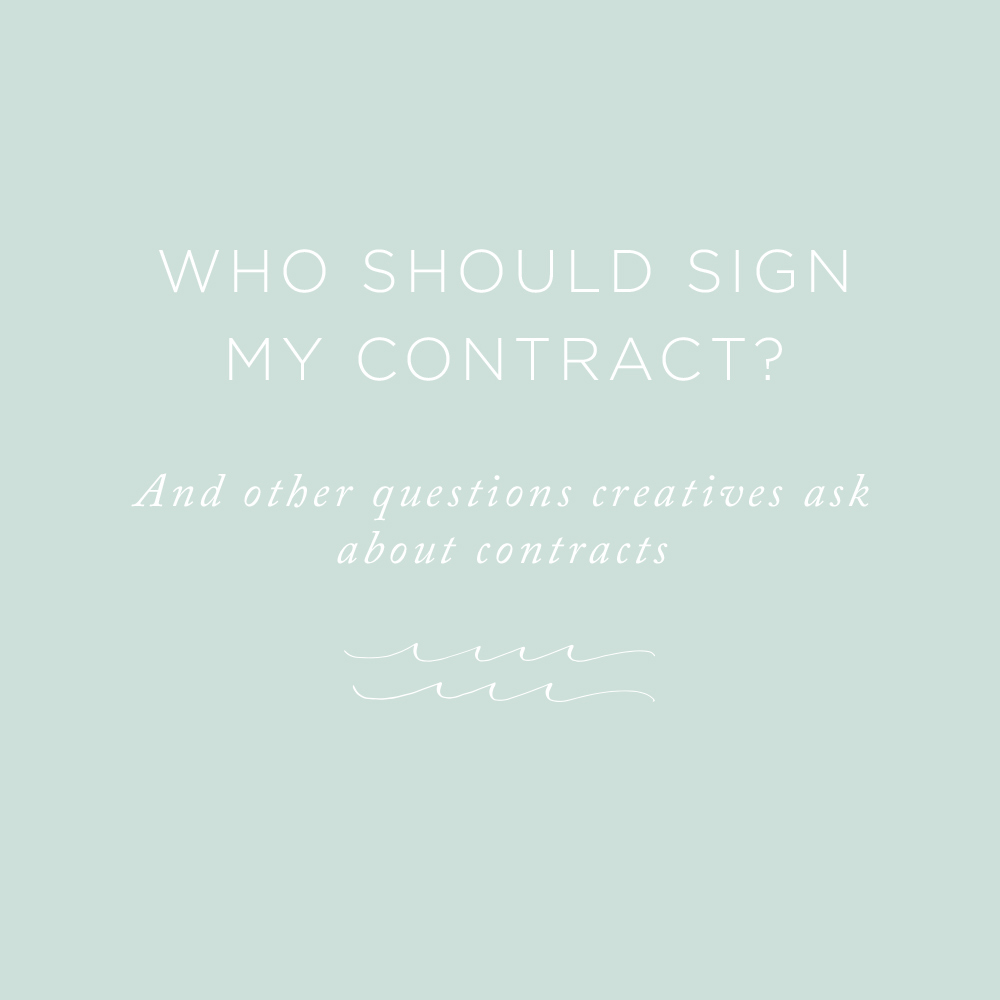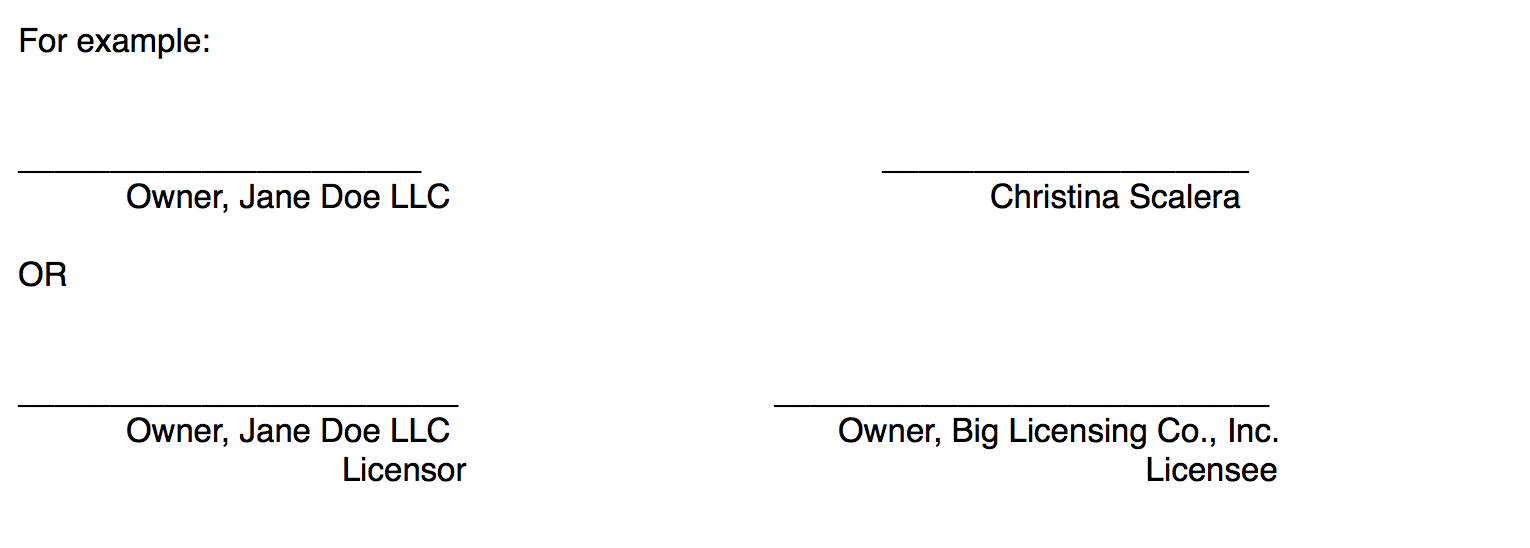
Who Should Sign my Contract?
A new bride and her mother (who is paying you) have come to you for a consultation. They’re both so excited to start working with you and can’t wait to dot their ‘I’s’ and cross their ’T’s.’ They know you’re the one for them and want to sign your agreement. It’s just a formality anyway, right? (Eeek! Not quite…)
Or maybe you’re entering a new business venture, eager to license out your work to start earning some of that “passive income” everyone talks about. When it comes time to sign, do you know what name will be in the agreement and whose signature will be at the bottom? Yours, right? (Maybe not.)
One of the most important parts of signing an online contract is getting the parties correct. Sounds easy, but in practice, it isn’t always so straightforward. Let’s take a closer look at who should be signing contracts.
A contract is merely an agreement of expectations and obligations between two or more people or parties. A ‘real person’ can enter these agreements, like Jane Doe, but so can a company, such as XYZ Calligraphy Co., LLC
The Eager Bride
So let’s go back to the eager bride and her mom. If her mom is paying you, should she sign? Probably. The person(s) who signs your agreement is the one you are legally obligated to serve. However, even if mom doesn’t sign but she’s still paying (and you know this), mom probably needs to sign your agreement too. This is because if something goes wrong, the person you want to pay you is not obligated to pay you.
Allowing mom to sign by herself could result in a huge headache if she and her daughter have differing opinions about what they want from you. You are responsible to mom and daughter collectively. However, there’s the added benefit of being able to collect your payment from either/or person if one person doesn’t pay on time.
Obviously, if a bride is willing and able to pay for your services herself, or doesn’t indicate otherwise, the bride will likely be the only person signing your agreement. There’s not one ‘right’ course of action, but you should think about who it is you want to work with when selecting your clients and allowing them to work with you.
And how about that licensing agreement?
When you enter into a licensing agreement for your photos, patterns, artwork, etc., it’s always prudent to enter into these things as a business rather than a person from a liability perspective. One of the advantages afforded to business entities (LLC, SCorp, Inc., et cetera) is that they have the ability to enter into agreements, with all the obligations, burdens, expectations and so forth heaved onto the business entity rather than a person. For example, if you signed an agreement as your company, “Jane Doe LLC,” Jane Doe LLC would be responsible for the costs of litigation and any damages (payments the court says you owe to the person who sued you.) This means no matter how much money the court says Jane Doe LLC owes, they generally couldn’t touch Jane Doe’s personal assets. Jane Doe LLC might lose it all, but Jane Doe still has her car, her house and her kid’s college fund.
Keep in mind that after the contract comes an invoice. Make sure that the information on the contract is the same as on the online invoice. If you use a system like HoneyBook with built-in online payment software, your life will also be much easier when it comes to retrieving payment.
Make contracts easy. Sign-up for HoneyBook.
Where do the parties matter most?
The parties or persons matter in three main areas:
1. The introduction of the contract, where you introduce the parties or people signing the agreement. For example:
This Agreement is made between Jane Doe LLC (herein known as “Photographer”) and Eager Bride (herein known as “Bride”).
This Agreement is made between Jane Doe LLC (herein known as “Licensor”) and Big Licensing Co., Inc. (herein known as “Licensee”.)
2. In the agreement, referring to the people or parties properly by the titles given to them in the introduction. For example, consistently referring to the people or parties as Photographer, Bride, Licensor, Licensee, and so on.
3. At the conclusion of the agreement where the parties or persons sign.

Key Takeaways
- There’s no one “right” way to do all this. Everything is situational, which is why lawyers still exist. But one thing you can do to help yourself is make sure you clearly state what you mean and/or want in your agreement.
- Make sure the proper parties or persons are entering your agreement.
- If you have a company, make sure the company is the party entering into your agreements to protect your personal assets.
- Get your free Legalize Your Biz book today to find out more about building a beautiful creative business from the inside out.
For More Information:
If you have any questions or this article has raised up some additional concerns, come on over to my website and follow along as I answer reader questions and provide new, free tips for your creative business every week. Plus, you can sign up for my free book about getting your business started the legal way.
The content in this article is provided for informational purposes only. This information does not constitute legal advice and does not establish an attorney-client relationship. Should you need legal advice for a particular matter concerning your business, seek out the guidance of a licensed attorney.



